This post is also published on:
So my journey to slowly detach from social media (more to come in a later post, I kept stalling on writing posts lately) has been interrupted once again when the Indonesian Ministry of Communications, notable for bringing in the borderline-censorship clusterfuck that is the Internet Positif, has decided that they will add Tumblr to their blocklist.
Of all websites.
This only adds to a ever-lengthened list of websites that were mistakenly blocked due to user-generated content. Same issue happens to Vimeo, and Reddit. And this further adds to the list of idiotic behaviour that the Indonesian government has performed in the past year.
I've always told in the past that Internet Positif is close to borderline censorship. Here's why.
In that article, Azhar Hasyin, the e-Business director of the Ministry of Communications stated that they blocked Tumblr "because we found numerous sexual, and obscene images". Ever wondered how they found it?
You're right, they looked for it themselves.
Because you'll never go to Tumblr and instantly, some lesbian porn appeared on your front-page. Nope. The front page of Tumblr, for those who never logged in, is just a simple sign-up page.
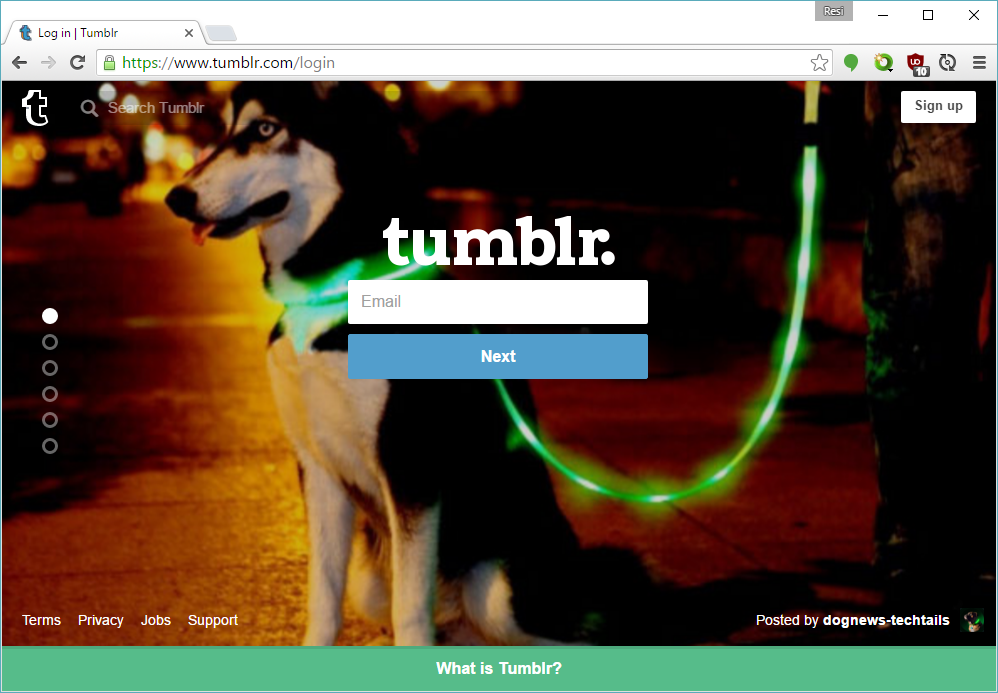
Once you sign up, you see a blank dashboard. This will remain empty, until you start to follow a bunch of people whose posts you find interested in. Now, you'll find that your Tumblr dashboard becomes colourful, full of beautiful scenery photos, memes, and the like.
When I log in, now I have food in my dashboard.
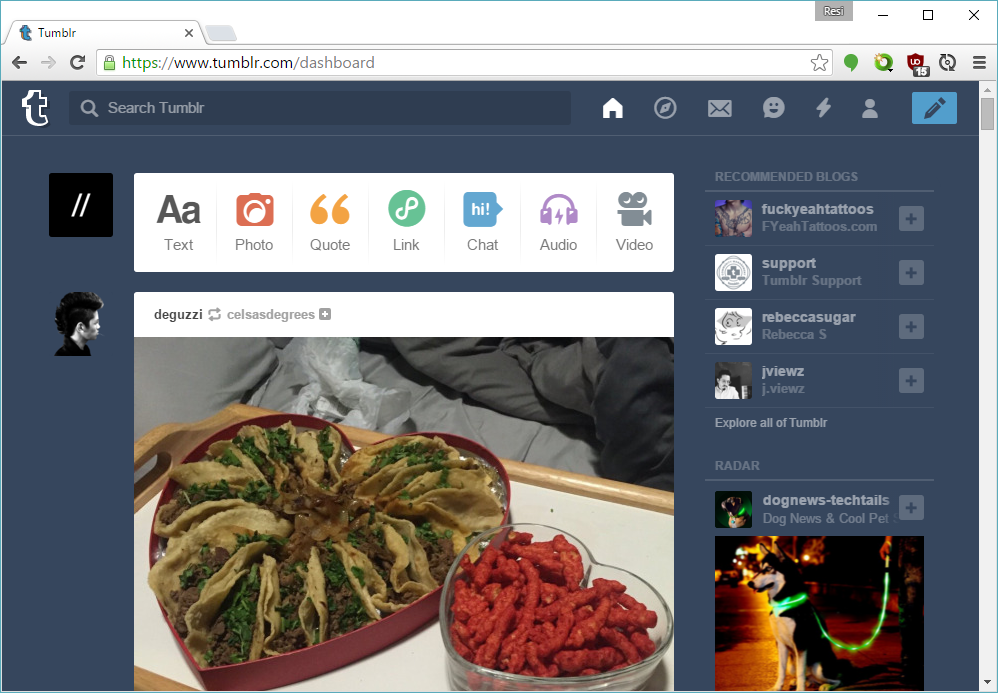
Do you have food in your Tumblr dashboard? No? Didn't think so.
What you just did is search for "porn" on the searchbox and things come out. Mind you, these are all user-generated content, and Tumblr is simply a middleman. They provide a medium to post whatever they like, which, of course, adhere to the Tumblr Community Guidelines.
Speaking of the Community Guidelines, in the "What Tumblr is not for" section, they included lists of things which should not be allowed on Tumblr, which in that case, take a look at this.
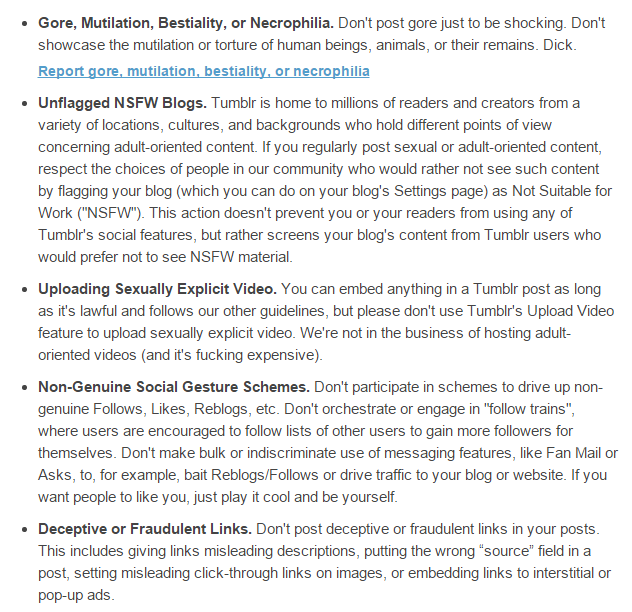
The community guidelines explicitly disallows blogs that post NSFW content that aren't marked as such. When a blog is marked for having NSFW, Tumblr puts safeguards in place that screens your blog's content from Tumblr users who would prefer not to see NSFW material.
So, government, could you let me know how you found these "sexual content" again? Has there ever been any in-depth study on whether or not Tumblr has said content? Or did you just type "porn" on the search box and flag the website if results come up?
If you did the latter, then it's not us who are lusting for NSFW content. No, we're sick of being treated as perverts. In which case, you are the actual pervert here.
I did mention about the Internet Positif being "borderline censorship" earlier. I mean, it's okay to filter out the internet for your kids, but please don't do it on a national scale. And don't put it under a shady system that never showed any form of transparency.
Because you see, when you visit the official government website and look up their database, this is the only information you will get.
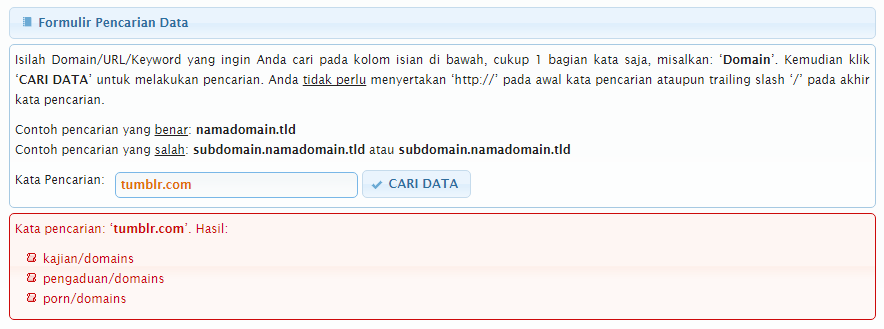
So what do I get from this? What do kajian/domains, pengaduan/domains and porn/domains even mean? There's no evidence on whether or not they have done some research on these domains. There's no place to download the entire database. of blocked websites. It seems that their most prized work is the "report" page, which also looks very dodgy.
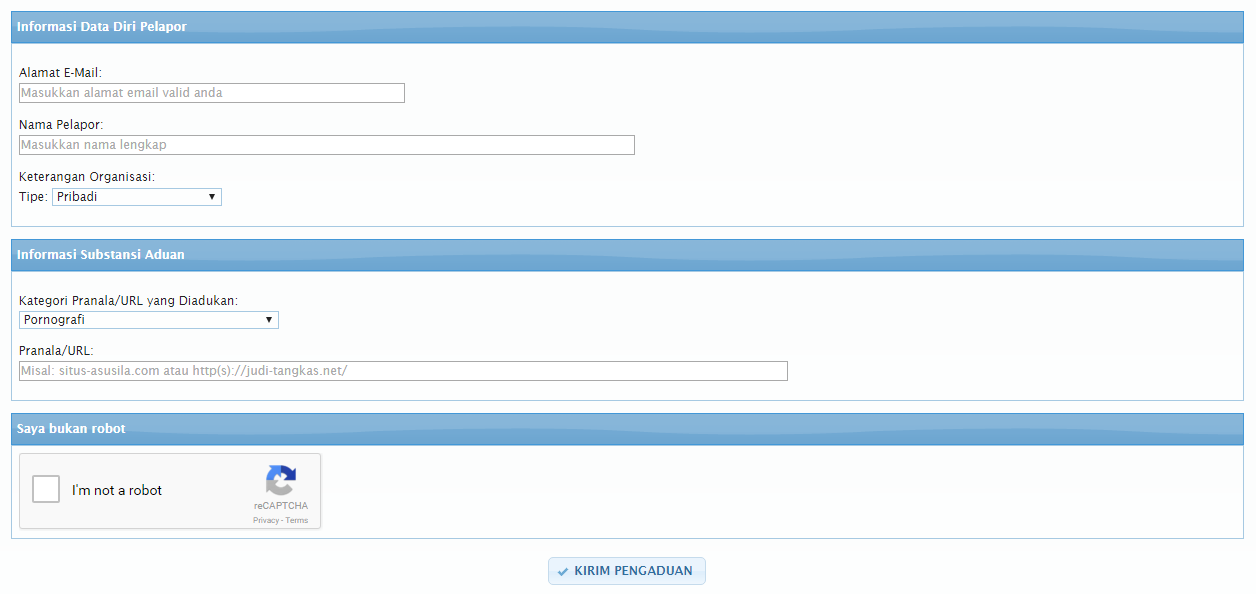
In short, lack of transparency == censorship. There's no transparency given, and it could be misused for political reasons, which in turn could be used to suppress freedom of speech. I don't care if you're blocking websites related to terrorism/radicalism, if you block websites, you're still violating freedom of speech.
There's no point going with the "shoot first, ask questions later" approach on internet safety. The internet is a global playground. There's no way you can block every single pornographic/radical/hateful/etc website there is. It's the internet. The only way you can prevent children from visiting websites with pornographic content is to educate them.
This post is also published on Medium.